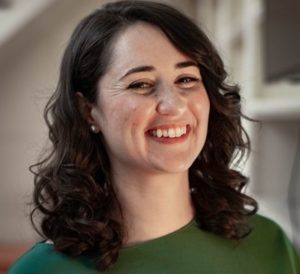In the bigger picture, the present condition of our world is no less than mayhem. On the one hand, science is creating wonders with technology making our lives easier but on the other hand, millions of people are dying every day due to lack of treatment and development in medical science. Who is to blame for this? Are we way too ignorant to make significant contributions in the medical community? Or the price is so high that we have blatantly stopped trying? There are so many people dying every minute suffering from incurable diseases or due to late detection of infections in their body. Though the renowned and biggest research centres of our world are working together to invent instruments that can easily detect diseases, they are way too costly for common citizens.
With the zeal to alter the future of our world and stop it from destruction, four scholars of Purdue University, Katherine Clayton, Tamara Kinzer-Ursem, Jacqueline Linnes and Steve Wereley, came up with a unique solution to detect infectious and deadly diseases, which are both times efficient and affordable. With the mission to create affordable medical equipment, these four enlightened minds founded OmniVis, a company that will reach out to common people, help them detect disease and make out society better in terms of well-being.
Founders of OmniVis
Currently, Katherine Clayton is the CEO of the company with Ursem, Linnes and Wereley working as the Advisors.

Clayton, who is originally from San Francisco, went to Pursue University to complete her PhD in mechanical engineering. When she was an undergraduate student, she had already decided to work with healthcare products and make easy infection and disease detection equipment available to common people. When Clayton was a kid, she lost someone very close to her, due to the absence of better tools in the medical field, and hence, this was the beginning of her dream to do better for the community. She, with other three scholars, co-founded OmniVis in 2017, and since then, it has received worldwide support and funding.
Ursem is associated with Weldon School of Biomedical Engineering as an assistant professor which is under Purdue University. Her main area of research involves molecular biology, computational biology and neuroscience.
Linnes is also an assistant professor in the Weldon School of Biomedical Engineering as well. The Linnes Lab basically works to create technologies that can detect pathogens in a time-efficient way and stop them from propagating. She also has her own start-up, PotaVida founded in April 2010. The company’s goal is to develop pocket-friendly water purifiers and reach to the rural areas of the entire world.
Currently, Wereley is a professor at the School of Mechanical Engineering at Purdue University. His specialised fields are fluid mechanics and optics. He is also the founder of a company called Microfluidics Innovations.
The Idea
Since all of them belonged to a strong research background, OmniVis emerged out as a successful idea. More than a business, it is really an idea that inspired every company, research institutes throughout the world. OmniVis has created products that can detect Cholera with less than an hour with its concepts and techniques.
Currently, OmniVis works with iPhone but soon it will incorporate the software in Android and start testing the beta version. OmniVis works in a simple process with few steps, collect the sample, detect pathogen and map location. OmniVis detects and shows the location on the map from where the sample was taken to alert the authorities. And all of these are getting done within 30 minutes with the technology of OmniVis.
The Achievements
In 2017, OmniVis acquired the first place in Vodafone Wireless Innovation Project funded by Vodafone Foundation. In 2018, OmniVis was nominated for World Changing Idea Finalist. In June 2018, the company received Phase I SBIR Grant from National Science Foundation. In the same year, OmniVis won the 2018 AMPLIFY Pitch Competition where participants from 46 different countries participated. After winning the Biological Innovation Award in February 2019, OmniVis took a step ahead and expanded out of Indiana. In May 2019, the team reached out to Bangladesh and shared the benefits of OmniVis products with them.
Some of the major investors at OmniVis are Vodafone Foundation, Deloitte, Fast Company, Purdue University, halcyon and many more.

Annasha Dey is an NIT student, who apart from studying engineering is also a content writer. She has a great interest in photography, writing, reading novels, and travelling as well. She is a foodie who loves socializing and hanging out with her friends. She is also a trained Kathak dancer and a big fashion enthusiast. Dey also loves watching TV series, which includes F.R.I.E.N.D.S. and Big Bang Theory. To be a better writer she prefers to read more
